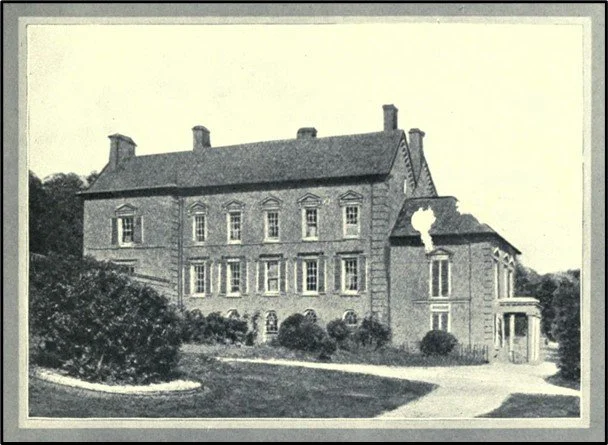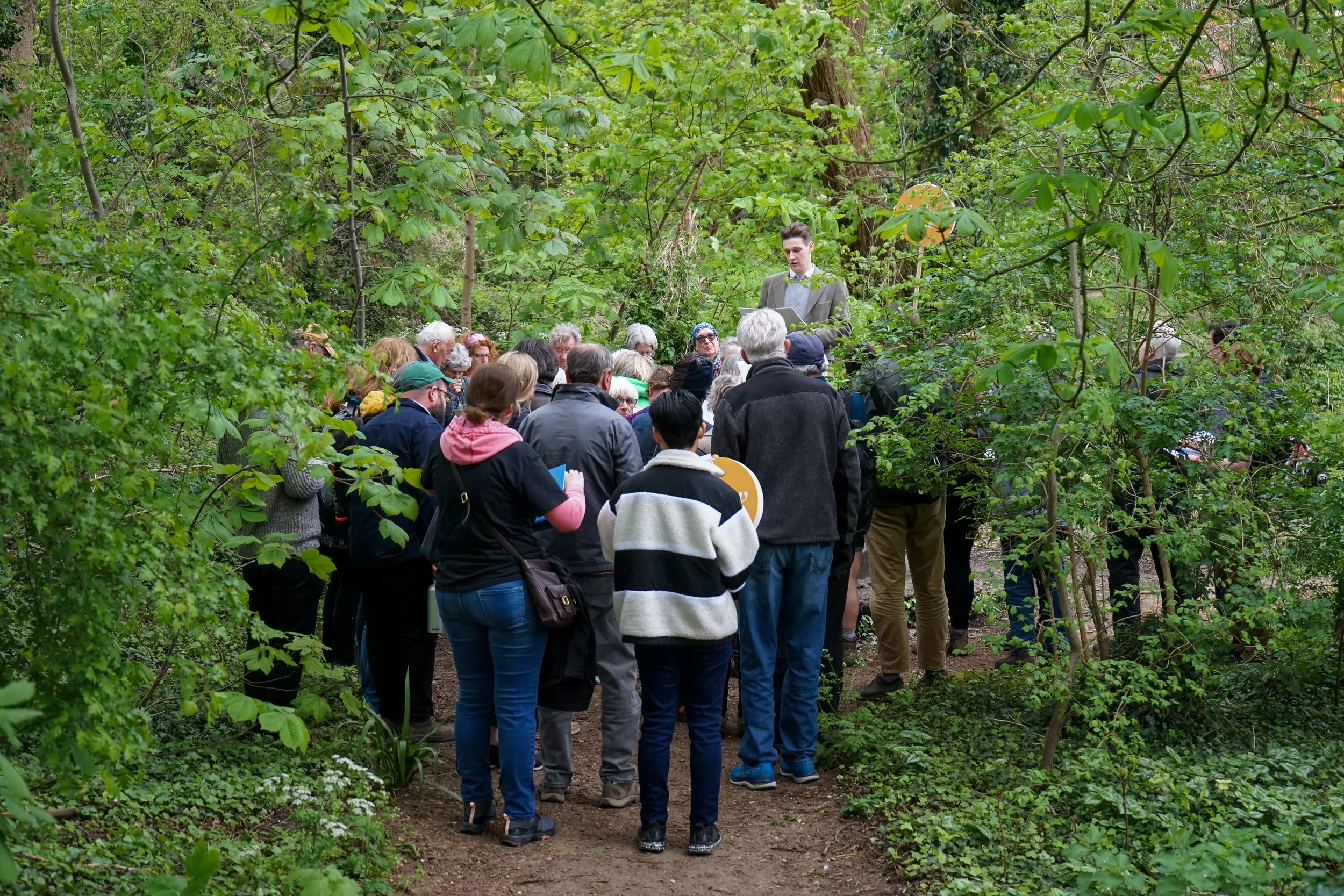
Research, Policy & Engagement
The ‘All Footsteps’ Project Booklets: Summarising three Years of Research
As we come to the conclusion of this AHRC project, the In All Our Footsteps team have produced a series of short booklets outlining key themes and findings of the project; Mapping, Healthy Ways, Accessible Ways, Citizenship and Working on Paths.
Finding Our Rights of Way
Michèle Sedgwick asks why so few of us exercise our rights of way - and how we might find them again.
Who Goes Where? Privacy, Access, and Power on Two Pembrokeshire Estates, 1906-1910
The story of a revealing access battle in Edwardian Pembrokeshire.
Think Human 2024: The Lost Paths Talk
Jack Cornish from The Ramblers came to Oxford Brookes to talk about his new book, The Lost Paths, as part of a panel about the past and future of rights of way and access.
Think Human 2024: The Lost Paths Walk
As part of the Oxford Brookes ‘Think Human’ festival, Tom Breen led a guided walk through Headington, exploring how rights of way are made, lost, and reclaimed.
Scotland’s barbed wire problem
In this vivid photo-essay, Adam Robertson Charlton looks at the way barbed wire confines and controls access to the land
Seeing like a quarryman: an unfamiliar ‘archive of the feet’ along Hadrian’s Wall
Last year I walked along the middle section of Hadrian’s Wall Path, a National Trail that opened in 2003 and follows the line of the Roman Wall for 84 miles coast to coast, between Wallsend in the east and Bowness-on-Solway in the west. Beginning at the Roman fort Vercovicium (Housesteads), I set out for Cawfields Quarry, just over 5 miles away. I walked westwards into the prevailing wind, but the reward was a feeling of authenticity in the knowledge that I was proceeding in the same direction as the Romans when they constructed their northern frontier from 122 AD
Fighting a Rights of Way Campaign in Oxford
Why are urban paths often not the subject of campaigns to register them as Rights of Way? And what makes for a successful campaign if they are? This blog uses a long-running controversy in Oxford to begin tentative answers to both questions.
Unlocking pathways
Clare and Abbi from In All Our Footsteps and Dr Sarah Bell (Exeter University) recently facilitated a workshop at the 2023 annual conference of the European Society for Environmental History in Bern (Switzerland). Here, Abbi reflects on their workshop and shares a collaborative tramping poem co-written by workshop participants.
Challenging rights of way decisions
How are the decisions to set up, clear or close rights of way actually made, and how should they be made in the future?
Pointing the Way
Physical signs in the landscape are still vitally important, even in the age of GPS - but they can obscure and misdirect, as well as help.
Navigating Udal Law in Orkney
Orkney may be subject to the ‘right to roam’ that runs throughout Scotland, but in reality it is full of stringently enclosed and privatised landscapes.
Personal reflections on the Wales Coast Path
Walking the Wales Coast Path is an immersive experience through an imagined landscape of meanings.
‘In a different place’: Walking the Yorkshire Wolds Way
In October 2022, during the 40th anniversary year of the Yorkshire Wolds Way National Trail, Andrew Elliker-Reeve became the first blind man to walk the entire 79 miles of the route in seven consecutive days to raise money for Guide Dogs, and shared his journey through his blog Travelling Blind. As last Saturday was World Trails Day, it seemed like a great opportunity to share Andrew’s experience of walking this East Yorkshire trail and what it meant to him.
Reading the signs
In this piece we reflect on the range of formal and informal signs seen along rights of way and what these might convey, in terms of both meaning and affect, to those who encounter them.
The England Coast Path: Between Land and Sea
England’s new Coast Path is not so much a new right of way but a novel ‘zone of access’, and it will be shaped itself by a changing landscape.
Bristol’s Many-Layered Footpaths
Pedestrian networks in towns and cities are just as important as rights of way ‘in the countryside’ - and reveal just as much about our history.
A ‘Once in a Generation’ Opportunity? New Labour and the ‘Right to Roam’
The limited ‘right to roam’ in parts of England and Wales may only apply to some of the country, but it was a more radical measure than New Labour promised while in Opposition. Why did Ministers commit to open access?



















